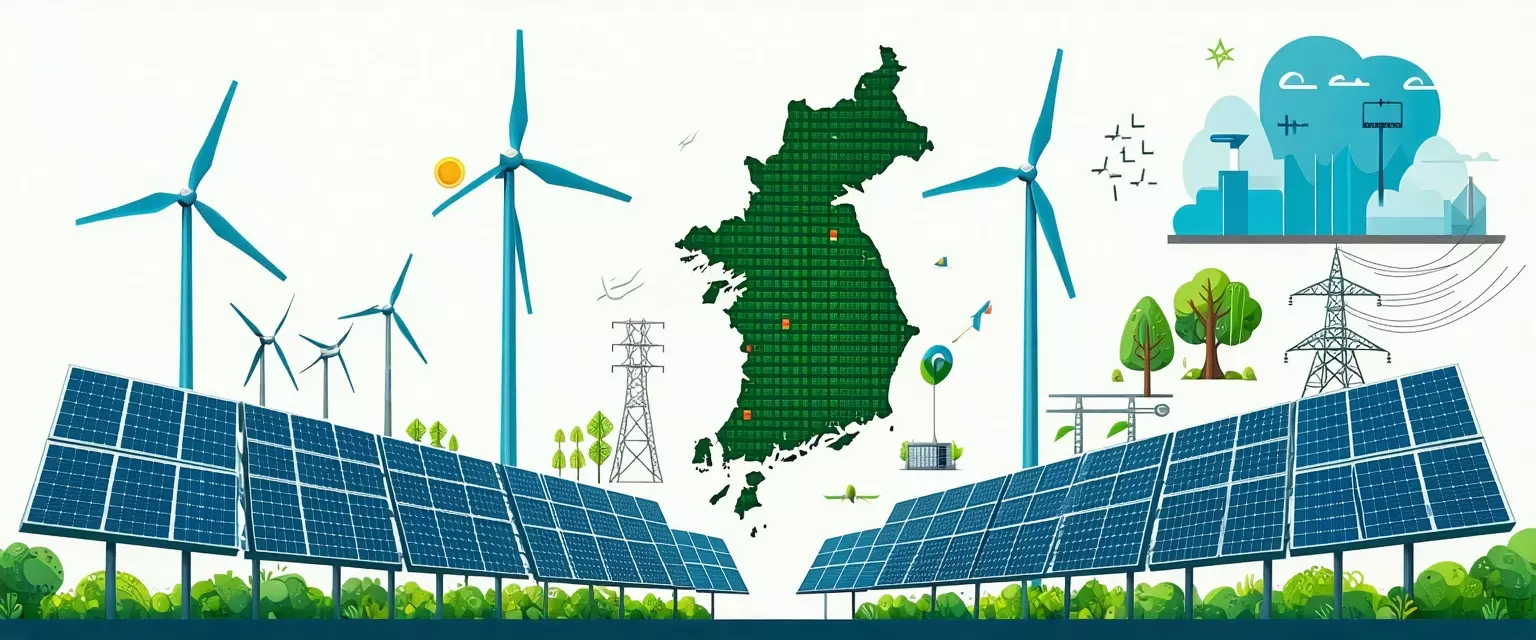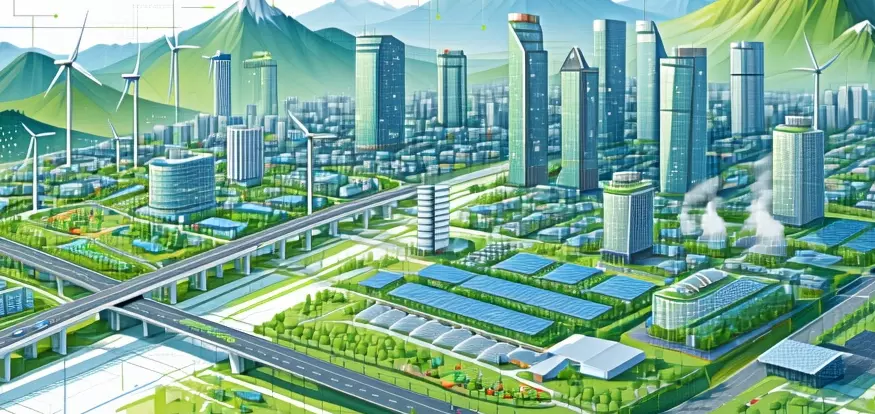As global momentum toward renewable energy accelerates, the RE100 initiative has updated its technical criteria to ensure higher credibility and real-world impact. Effective from 2025, these new standards aim to drive stronger, more transparent corporate commitments to renewable electricity worldwide.
For companies operating in South Korea, the RE100 update brings both new challenges and new opportunities. With stricter requirements on energy sourcing, project age, and reporting transparency, South Korean businesses must act now to align their renewable energy strategies with the updated framework — and position themselves as leaders in the global energy transition.
This article provides a clear overview of the RE100 2025 update, its specific implications for the South Korean market, and the key actions companies can take to stay compliant and competitive.
What's Changing with the 2025 RE100 Update
The 2025 update to the RE100 technical criteria introduces several important changes designed to enhance the credibility and effectiveness of corporate renewable energy claims:
- Project Age Limitation: Electricity must now come from renewable energy projects commissioned or repowered within the last 15 years. Older projects will only be accepted for up to 15% of a company's total renewable electricity consumption.
- Stricter Sustainability Standards: While wind, solar, and geothermal energy continue to be accepted without restriction, hydro and biomass must meet specific sustainability criteria to qualify.
- Tighter Market Boundaries: Renewable electricity must be sourced within the same regional electricity market as its consumption. In Europe, for example, only countries that are part of the EU internal market, AIB (Association of Issuing Bodies), and interconnected are considered a "single market" under the new rules. Some countries like the UK and Poland are now considered separate markets.
- Enhanced Reporting Requirements: Companies must disclose detailed information about the commissioning date of each renewable energy project they source from, reinforcing transparency and data accuracy.
These changes reflect a broader shift: RE100 aims not just for companies to claim renewable energy usage, but to actively drive the addition of new renewable capacity and support credible, local energy transitions.
To provide a clear comparison, Table 1 below summarizes the key differences between the previous and updated RE100 technical criteria.

Key Changes in the 2025 RE100 Technical Criteria
Project Age | No formal limitation on project commissioning date | Only projects commissioned or repowered within the last 15 years accepted (85% minimum) |
Sustainability Standards | Wind, solar, hydro, biomass, geothermal accepted without specific sustainability proof | Hydro and biomass must meet verified sustainability criteria |
Market Boundaries | Broad regional markets accepted (e.g., wider Europe) | Stricter market definitions; sourcing must occur within the same defined market region |
Reporting Requirements | Basic reporting on renewable energy sourcing | Mandatory disclosure of project commissioning dates and sourcing details |
In the next section, we will explore how these updates specifically impact South Korean businesses and what challenges they may face.
Challenges in Adapting to the RE100 2025 Standards in South Korea
In Korea, we are seeing that the 2025 RE100 updates, while necessary to strengthen global renewable energy commitments, present specific challenges that we must navigate carefully:
- Limited Renewable Energy Supply: Our domestic renewable energy market remains relatively small compared to global standards. As the new 15-year commissioning rule comes into effect, securing eligible green electricity could become increasingly competitive.
- Higher Procurement Costs: Renewable energy in Korea continues to command a premium compared to other markets. Structuring affordable corporate PPAs or accessing green tariffs requires careful planning and negotiation.
- Regulatory and Market Complexities: Although the K-RE100 framework has introduced new pathways like corporate PPAs, regulatory hurdles and limited transparency in certificate systems can still complicate direct sourcing efforts.
- Tighter Reporting Requirements: Accurately tracking commissioning dates and sustainability standards for every sourced MWh will require more robust data collection and supplier engagement processes.
- Source Eligibility Restrictions: The new restrictions excluding biomass co-firing and tightening hydro project requirements reduce the pool of eligible renewable sources within our market.
Recognizing these challenges early allows companies in Korea to proactively adapt and position themselves for continued leadership in corporate sustainability.
How Companies in Korea Can Strategically Adapt
To address these challenges and meet the 2025 RE100 requirements, businesses in Korea should consider the following actions:
Prioritize New Renewable Projects:
We should actively seek supply from renewable energy projects commissioned or repowered after 2010, securing long-term agreements before market competition intensifies.
Expand Corporate PPA Utilization:
With recent regulatory shifts under K-RE100, more flexible corporate PPA options are available. By working with trusted partners and leveraging aggregated models through the Korea Electric Power Exchange, companies can build more resilient renewable portfolio
Maximize the Benefits of the K-RE100 Framework:
A combined approach — blending on-site generation, green tariffs, and REC purchases — enables greater flexibility and better alignment with both operational needs and RE100 standards.
Strengthen Internal Reporting Systems:
It is critical to work closely with energy suppliers to obtain commissioning data and sustainability proof for all energy sources. Companies may also need to invest in digital tools to streamline and verify reporting.
Anticipate Price Volatility:
Given the expected rise in demand for compliant renewable electricity, locking in favorable prices through multi-year contracts will be essential to managing long-term costs.
By taking these proactive steps, businesses in Korea can not only ensure compliance with the RE100 2025 update but also strengthen their market position, build stakeholder trust, and contribute meaningfully to the broader renewable energy transition.
Building Strategic Advantage Through Early Adaptation
The 2025 RE100 update represents an important turning point for companies operating in Korea. The stricter requirements will demand more than simple adjustments; they call for a strategic, forward-looking approach that integrates sustainability deeply into corporate energy planning.
In our market, success will come to those who act early, secure reliable renewable energy sources, and invest in transparent, high-quality reporting systems. Rather than viewing the new standards as a compliance burden, we have an opportunity to reinforce our leadership in sustainability, build stronger relationships with stakeholders, and contribute to a cleaner, more resilient energy future for Korea.
By embracing these changes now, we are not only meeting evolving global expectations — we are actively shaping the sustainable growth of our industries and our economy.
Ready to strengthen your renewable energy strategy ahead of the RE100 2025 update?
Contact us


